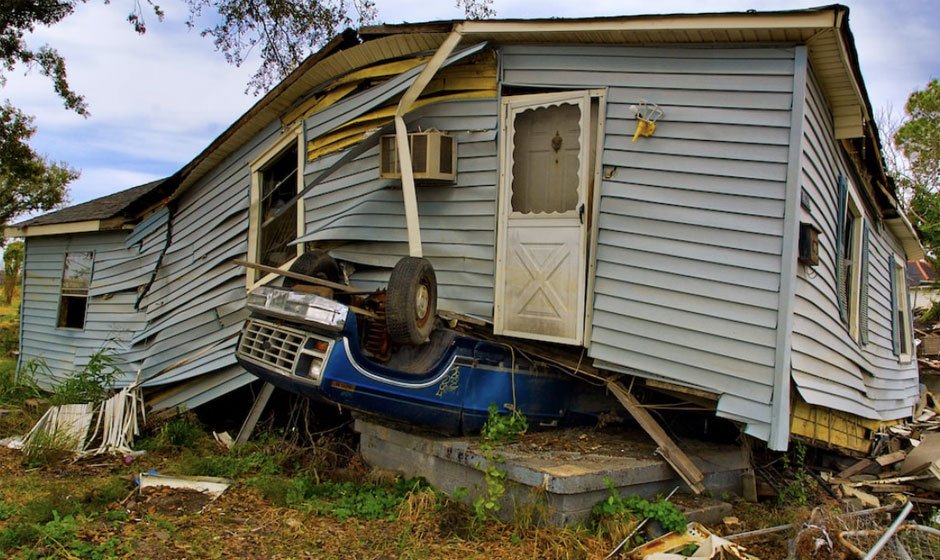How to Prepare Your House for a Hurricane

As residents of Lansing, Michigan, we know that our weather can be unpredictable and sometimes extreme. With the increasing intensity of hurricanes in recent years, it’s essential to be well-prepared.
Preparing your house for a hurricane not only ensures the safety of your family and property but also brings peace of mind in these uncertain times.
This comprehensive guide will walk you through the steps you need to take to safeguard your home against the fierce winds and heavy rains of a hurricane.
From reinforcing your home’s structure to creating an emergency plan, we’ve got you covered.
Strengthening Your Home’s Foundation
The foundation of your house is the bedrock of its stability, especially during a hurricane. Begin by inspecting your home’s foundation for any cracks or weaknesses.
If you find any issues, address them immediately. Waterproofing your basement can prevent flooding, and securing loose items in your yard can prevent them from becoming hazardous projectiles. Consider installing storm shutters for your windows or, at the very least, boarding them up with plywood to protect them from flying debris.
Securing and Repairing the Roof
Your roof is one of the most vulnerable parts of your home during a hurricane. A sturdy, well-maintained roof can be the difference between minor damage and a catastrophic collapse. Start by inspecting your roof for any signs of wear or damage. Look for missing or loose shingles, and ensure that your gutters are clean and secure.
It might be wise to consult with Lansing, MI Roof Repair experts to assess the condition of your roof and make necessary repairs or replacements. They can offer specialized advice and services to reinforce your roof against the extreme weather conditions typical of a hurricane.
Reinforcing Doors and Windows
Doors and windows are critical points in your home that require attention. Reinforce them by installing heavy-duty bolts and storm-proof glass. Weather stripping can also prevent water from entering your home. If you have sliding glass doors, consider installing extra locks or protection bars. Remember, the goal is to make sure that these entry points can withstand the high winds and heavy rains that hurricanes bring.
Preparing the Surroundings
Your property’s surroundings play a crucial role in hurricane preparedness. Trim trees and shrubs around your home to minimize the risk of branches falling on your house. Secure or store outdoor furniture, decorations, and tools to prevent them from being picked up by strong winds. If you have a pool, consider lowering its water level to prevent overflow and flooding.
Creating a Hurricane Emergency Plan
Having a well-thought-out emergency plan is crucial. Ensure that all family members know where to go and what to do in case of a hurricane. This plan should include evacuation routes, emergency contacts, and a designated meeting point in case of separation.
Keep an emergency kit with essential items like water, non-perishable food, medications, flashlights, and batteries. Staying informed about the local weather and following the advice of emergency services is also vital.
Ensuring Proper Drainage and Flood Prevention
Proper drainage is crucial in mitigating the risk of flooding during a hurricane, especially in areas like Lansing, Michigan, where heavy rains can lead to significant water accumulation. Begin by inspecting and cleaning your home’s drainage systems, including gutters and downspouts.
Ensure they are free of debris to facilitate smooth water flow away from your house. Consider installing a sump pump if you have a basement, as this can be a lifesaver in preventing floodwater accumulation. Additionally, assess the grading around your home.
Developing a Communication and Recovery Plan
In the chaos that follows a hurricane, having a clear communication and recovery plan is essential. Ensure that all family members have a list of important contacts, including local authorities, emergency services, insurance agents, and roof experts for post-hurricane repairs.
Establish a family communication plan that includes ways to get in touch if cell phones are not working, such as using landlines or meeting at a predetermined location. After the hurricane, assess the damage to your property carefully. Document any damage for insurance claims and contact professionals for necessary repairs. Be cautious of hazards like downed power lines or structural damage. This plan should also include strategies for returning to normalcy, like restocking supplies and repairing any damage.
Investing in Emergency Power Solutions
In the event of a hurricane, power outages are a common and significant challenge. For residents in Lansing, Michigan, investing in emergency power solutions can be a game-changer. Consider purchasing a generator, whether portable or a permanent standby model, to ensure you have power during outages. When choosing a generator, consider the size and power needs of your home. Learn how to safely operate it, and remember to store enough fuel in a safe location.
Additionally, explore alternative power options like solar-powered chargers for small devices. Having a stockpile of batteries for flashlights and radios is also advisable. The key is to have multiple sources of power to rely on, ensuring that your essential appliances and devices can function during and after the hurricane.
Organizing Important Documents and Insurance
In the face of a hurricane, having all your important documents organized and easily accessible is crucial. Gather documents like birth certificates, passports, property deeds, and insurance policies and store them in a waterproof and fireproof container. In Lansing, Michigan, where hurricanes can cause significant property damage, having your insurance information at hand is particularly important. Review your insurance policies to understand what is covered in the event of a hurricane.
Conclusion
Preparing for a hurricane in Lansing, Michigan, requires a combination of proactive measures and effective planning.
By strengthening your home’s foundation, securing and repairing the roof, reinforcing doors and windows, preparing the surroundings, and creating a hurricane emergency plan, you can significantly reduce the impact of a hurricane on your home and loved ones.
Remember, the time you invest now in preparing your house could be invaluable in protecting your family and property during a hurricane. Stay safe and prepared.



